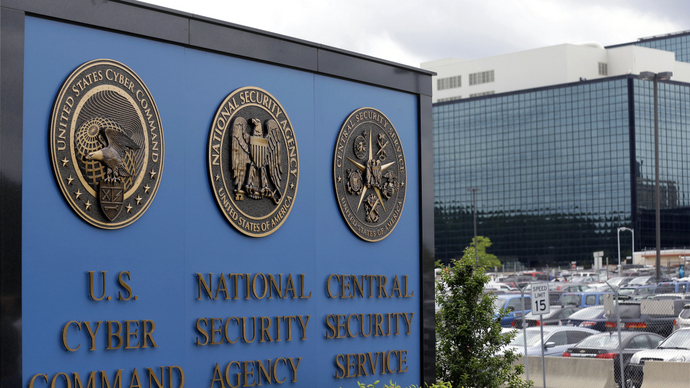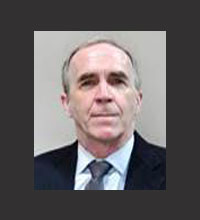
Published in partnership with Shadowproof.
The inspector general for the National Security Agency, George Ellard, received a termination notice for retaliating against a whistleblower. The outcome was the result of a process enabled by an executive order containing whistleblower protections issued in 2012 by President Barack Obama, according to a report from the Project on Government Oversight (POGO).
“The Ellard case is groundbreaking not only because it represents the most extensive use of PPD-19 procedures to date, but also because of Ellard’s high-ranking position in a national security environment where few, if any top officials are known to have been held accountable. A variety of reprisal accusations have been made against senior officials over the years. Rightly or wrongly, very few have ever been substantiated,” POGO journalist Adam Zagorin wrote. (PPD-19 is the “presidential policy directive” or executive order that Obama signed.)
Though unnamed, government officials confirmed Ellard was issued a “notice of proposed termination” in May from Admiral Mike Rogers, who is the NSA director. The notice came after “eight months of inquiry and deliberation” by an external review panel made up of the inspector generals from the Justice Department, Treasury Department, and Central Intelligence Agency. They overturned a finding from the Pentagon inspector general, which determined it could not confirm the retaliation claim against Ellard.
Jesselyn Radack, a whistleblower attorney who has represented multiple NSA whistleblowers, including Snowden and Thomas Drake, told Shadowproof, “Ellard’s proposed termination for whistleblower retaliation confirms what the whistleblowing community has long known: there were no safe and effective internal channels for NSA whistleblowers like Snowden to use. The case for pardoning Snowden is made stronger given Ellard’s now proven record of retaliation.”

Ellard became the NSA’s inspector general in 2007, and until Snowden’s disclosures, he did not make public appearances.
On February 25, 2014, Ellard participated in a panel discussion at the Georgetown University Law Center. It was the first time that he spoke about NSA whistleblower Edward Snowden’s disclosures, and in his remarks, he insisted if Snowden came to his office he would have investigated his allegations.
But Ellard also suggested his office would have told Snowden he misunderstood the constitutionality of the NSA phone records collection program. Members of the Senate and House intelligence committees would be made available to help him address his concerns about the program.
This is fantasy. The inspector general’s office would never roll out some carpet, welcome concerned NSA personnel, and even go so far as to schedule meetings with senators and representatives.
Ellard was the chief of staff on a presidential commission, which examined United States counterintelligence programs in the wake of espionage leaks committed by Robert Hanssen, an FBI Supervisory Special Agent. He compared Snowden to Hanssen, who was a spy.
“Hanssen’s motives were venal. For cash, perhaps, or perhaps, they were psychological, a desire to play a very, very dangerous game that is therefore very, very exciting. At the end of his career, Hanssen had almost 30 years in intelligence and counterintelligence,” Ellard said. “He knew exactly what was of value to his spy handlers and he was very specific in choosing documents to steal. He knew how to control his handlers better than they knew how to control him.”
“Snowden, in contrast, was manic in his thievery, which was exponentially larger than Hanssen’s. Hanssen’s theft was, in a sense, finite whereas Snowden is open-ended, as his agents decide daily which documents to disclose. Snowden had no background in intelligence and is likely unaware of the significance of the documents he stole.”
Glenn Greenwald, whose work on documents from Snowden garnered a Pulitzer Prize, reacted, “This seems to be yet another Obama official, who has no understanding of the newsgathering process except to invent concepts designed to demonize it. Journalists are not ‘agents’ of their sources, unless Ellard thinks that the New York Times and Washington Post are Snowden’s ‘agents,’ in which case he should have the courage to say this.”
When Ellard was asked at the event whether NSA oversight was effective, he answered, “I don’t think there have been any real questions raised about the efficacy of the oversight. Nobody is asserting, for instance, that the NSA intentionally violated the law. Some people are saying that the law violates the constitution. But we abided precisely by the contours of the law. The crisis is, however, that I suspect a broad swath of people in this room don’t believe that.”
At this point, reports on Snowden documents had been published for over a half of a year and highlighted illegality, abuses of authority, and threats mass surveillance programs pose to civil liberties.
Radack viewed Ellard as “completely hostile to whistleblowers” after hearing him speak at the Georgetown University Law Center event.
“This is a man, who runs an office that is supposed to protect whistleblowers, yet he described them as manic thieves and other such terminology and was quite hostile and intimidating,” Radack declared.
Radack has represented whistleblowers, who not only were retaliated against for making whistleblower disclosures but also who faced retaliation because they went to the NSA inspector general’s office to lodge complaints.
According to the POGO report, Ellard was placed on administrative leave. He has apparently filed an appeal with Defense Secretary Ashton Carter.

